What is Discernent Counseling?

Discernment Counseling is a relatively new form of brief couples therapy specifically designed for couples where one partner is “leaning out” of the relationship—and not sure that regular marriage counseling would help–and the other partner is “leaning in”—that is, interested in rebuilding the marriage. It is a short-term therapy approach aimed at helping couples on the brink of divorce gain clarity and confidence about deciding on a direction for their marriage, whether that is to try to restore it to health, move toward divorce, or take a time out and decide later.
Origins and Development
Discernment Counseling was created by Bill Doherty, Ph.D., a professor in the Department of Family Social Science at the University of Minnesota. Doherty is a licensed marriage and family therapist, a leader in the field of marriage and family therapy, and author of several books on relationships and psychotherapy.
Doherty developed Discernment Counseling in response to two main issues he observed in his clinical practice and research on couples:
- Many couples coming to therapy are “mixed-agenda” couples, where one partner wants to save the marriage and work on it, while the other thinks it’s too late and is considering divorce. Traditional couples therapy, which assumes both partners are willing to work on the relationship, often fails these couples.
- The divorce rate remains high, and research shows that a significant number of divorced individuals feel ambivalent or have regrets about their decision to divorce, even years later. This suggests a need for more help for couples considering divorce to make a thoughtful decision.
Drawing on his background in family systems theory, the psychodynamic concept of ambivalence, and research on divorce and relationship commitment, Doherty published the first paper describing Discernment Counseling in 2011. He has since trained hundreds of therapists in the approach and continues to refine the model.
Core Tenets and Assumptions
Discernment Counseling is built on several key ideas:
- Many couples on the brink of divorce are “mixed agenda” couples where one partner is “leaning out” of the relationship while the other is “leaning in.”
- These couples are often not ready for traditional couples therapy, which assumes both partners are willing to work on the relationship.
- Couples facing divorce often experience ambivalence and uncertainty. They can benefit from an opportunity to slow down, reflect, and carefully consider their options before making a final decision.
- The goal of Discernment Counseling is not to solve relationship problems, but to help couples gain clarity and confidence in their decision about the future of their marriage – whether to try to restore it to health, move toward divorce, or take a time out and decide later.
- Discernment Counseling emphasizes individual responsibility. Each partner is encouraged to look at their own contributions to the problems and potential solutions, rather than just focus on changing their partner.
- Discernment Counseling is short-term, typically involving 1-5 sessions. It is seen as a precursor to either couples therapy, divorce, or a temporary separation.
The Discernment Counseling Process
A typical course of Discernment Counseling involves 1-5 sessions, each lasting 1.5-2 hours. The process involves both individual conversations with each partner and time spent together as a couple.
Session 1:
- Assessment of each partner’s perspective on the problems and reasons for considering divorce.
- Individual time with each partner to understand their “leaning” regarding the relationship – leaning in, leaning out, or somewhere in between.
- Feedback to the couple about their options: continue with discernment counseling, move to couples therapy, move towards separation/divorce, or take a time-out.
Subsequent Sessions:
- Further individual conversations to help each partner gain more clarity about their own contributions to the problems and their goals.
- Couple conversations to share new insights, understandings, and decisions.
- If a decision is made to attempt reconciliation, referral to couples therapy.
- If a decision is made to move toward separation/divorce, discussion of how to do so in a constructive way, especially if children are involved.
Techniques and Interventions
Discernment Counseling uses a blend of techniques drawn from various approaches, adapted to the specific goals of helping mixed-agenda couples gain clarity and make decisions. Key interventions include:
Individual Time with Each Partner:
A key feature of Discernment Counseling is spending individual time with each partner. This allows the therapist to understand each person’s perspective and dilemma more deeply, without the other partner present. It also allows each partner to speak more openly.
Exploring Ambivalence:
The therapist helps each partner explore their own mixed feelings about the relationship, the decision to stay or leave, and their goals. Techniques from Motivational Interviewing, such as open-ended questions and reflective listening, are used to help partners articulate their ambivalence.
Focusing on the Self:
Rather than focusing on what each partner wants the other to change, the emphasis is on each partner looking at their own contributions to the problems and potential solutions. The therapist asks questions like, “What would you say your role has been in the problems in the relationship?” and “What would you be willing to work on to improve the relationship?”
Reflecting on the History of the Relationship:
The therapist guides the couple in reflecting on the history of their relationship, including the good times, when things started to go wrong, and each person’s role in the current difficulties. This can help couples gain a new perspective.
Divorce Preparedness Exercise:
If one or both partners are seriously considering divorce, the therapist may guide them through a “divorce preparedness exercise.” This involves imagining concretely what the divorce process and post-divorce life would look like, including impact on children, finances, living situations, etc. The goal is not to discourage divorce, but to ensure the decision is made with eyes wide open.
Discernment Questions:
The therapist poses questions to help each partner discern their path forward. Examples include: “What would it take for you to be willing to work wholeheartedly on this relationship for six months?” “If you decided to give the relationship another chance, what would be different this time?”
Summarizing and Highlighting:
As the couple expresses their thoughts, feelings, and insights, the therapist provides frequent summaries. The therapist also highlights key points that seem particularly important or revelatory. This helps the couple track and integrate what is emerging in the sessions.
Goals and Outcomes
The primary goal of Discernment Counseling is to help couples gain clarity and confidence about a direction for their marriage. This involves:
- A deeper understanding by each partner of their own contributions to the problems.
- More clarity about what each partner would need to see change to be willing to work on the relationship.
- A clearer sense of whether there is enough potential to rebuild the relationship to make it worth the effort to try.
- If the decision is to move toward separation/divorce, more confidence that this is the right path, and more readiness for the challenges ahead.
- If the decision is to attempt reconciliation, a better understanding of what each partner will need to work on in couples therapy.
Research on the outcomes of Discernment Counseling is still in the early stages, given that it is a relatively new approach. However, anecdotal reports from therapists using the approach suggest that it is helpful for many “mixed agenda” couples in reaching a decision and in preparing for the next steps, whether that is couples therapy or divorce.
Integration with Other Models
While Discernment Counseling is a distinct model, it can be integrated with other approaches. Many therapists trained in Discernment Counseling use it as a “front end” to their work with couples, before transitioning to another approach if the couple decides to work on reconciliation.
Discernment Counseling shares some common principles with other models, such as:
- The emphasis on individual responsibility found in Cognitive-Behavioral approaches.
- The exploration of ambivalence central to Motivational Interviewing.
- The focus on differentiation of self in Bowen Family Systems theory.
- The attention to the impact of family-of-origin issues in psychodynamic approaches.
However, Discernment Counseling is unique in its specific focus on helping mixed-agenda couples on the brink of divorce reach a decision about the future of their relationship.
Relevance for Modern Practice
In an era of high divorce rates and changing views of marriage, Discernment Counseling offers a valuable tool for therapists working with couples. It recognizes that not all couples coming to therapy are ready for or wanting the same thing, and it provides a structured approach for helping these couples clarify their direction.
Many of the principles and techniques of Discernment Counseling, such as the focus on individual responsibility, the exploration of ambivalence, and the emphasis on self-reflection, can be usefully integrated into any therapist’s work with couples. The model also highlights the importance of slowing down and taking time for careful consideration when facing significant relationship decisions.
As more therapists are trained in this approach and more research is conducted on its outcomes, Discernment Counseling may well become a standard part of the relationship therapist’s toolkit, alongside other well-established models. Its unique focus on serving couples on the brink makes it a valuable addition to the field.
Bibliography
Doherty, W. J. (2011). In or out? Psychotherapy Networker, 35(4), 45-50, 60.
Doherty, W. J. (2013). Take back your marriage: Sticking together in a world that pulls us apart. Guilford Press.
Doherty, W. J., Harris, S. M., & Didericksen, K. W. (2016). A typology of attitudes toward proceeding with divorce among parents in the divorce process. Journal of Divorce & Remarriage, 57(1), 1-11.
Doherty, W. J., Harris, S. M., & Wilde, J. L. (2016). Discernment counseling for “mixed-agenda” couples. Journal of Marital and Family Therapy, 42(2), 246-255.
Harris, S. M., Crabtree, S. A., Bell, N. K., Allen, S. M., & Roberts, K. M. (2017). Seeking clarity and confidence in the divorce decision-making process. Journal of Divorce & Remarriage, 58(2), 83-95.
Lebow, J., & Rekart, K. N. (2007). Integrative family therapy for high-conflict divorce with disputes over child custody and visitation. Family Process, 46(1), 79-91.
Pearson, B. (in press). Should I try to work it out? A guidebook for individuals and couples at the crossroads of divorce.



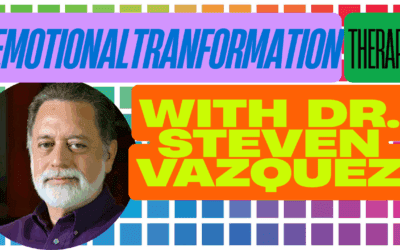





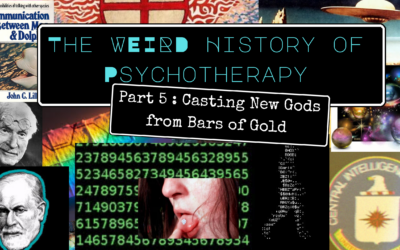
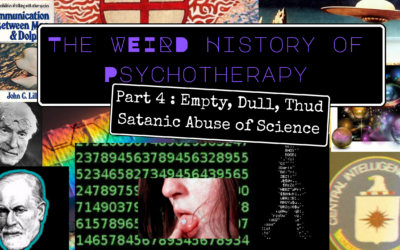
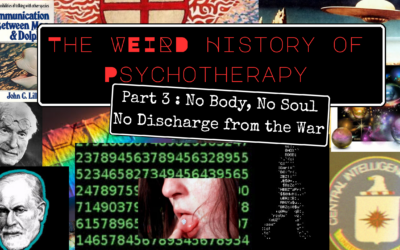
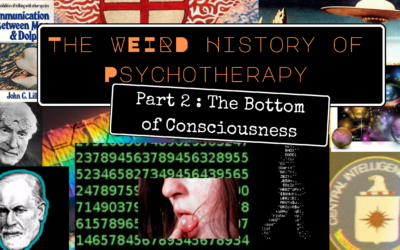

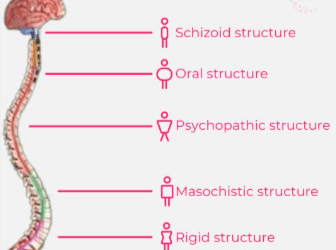










0 Comments